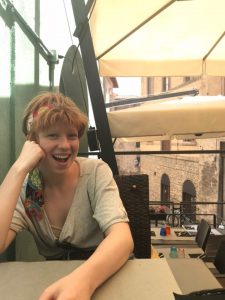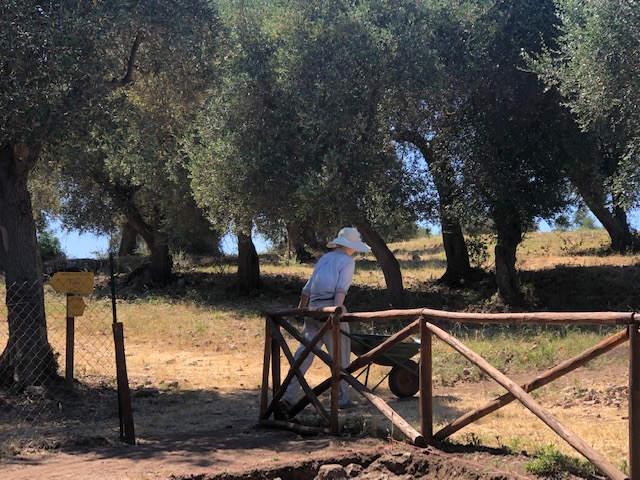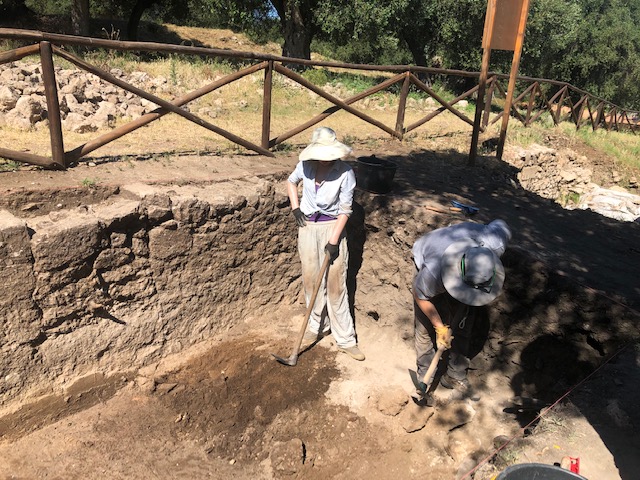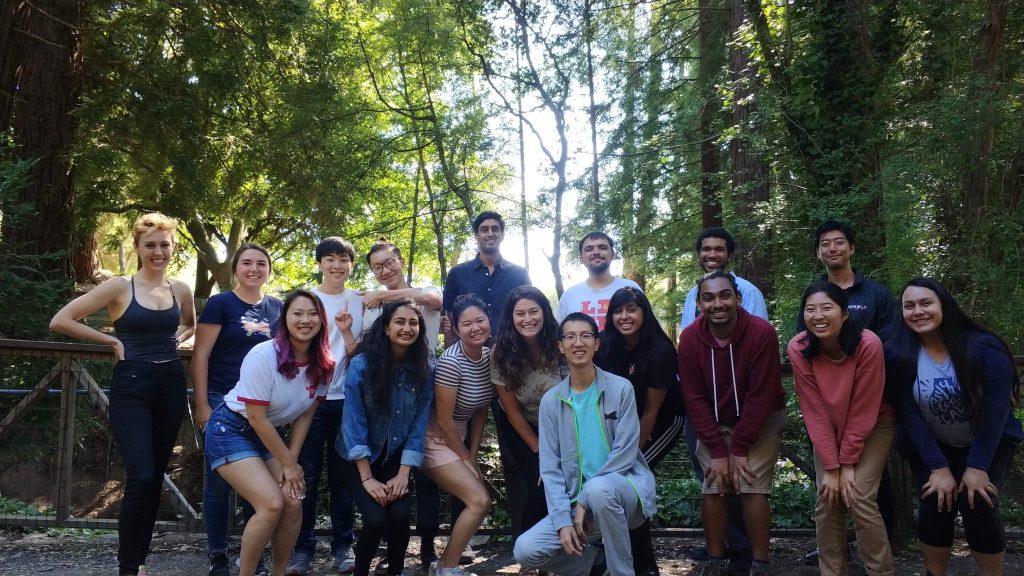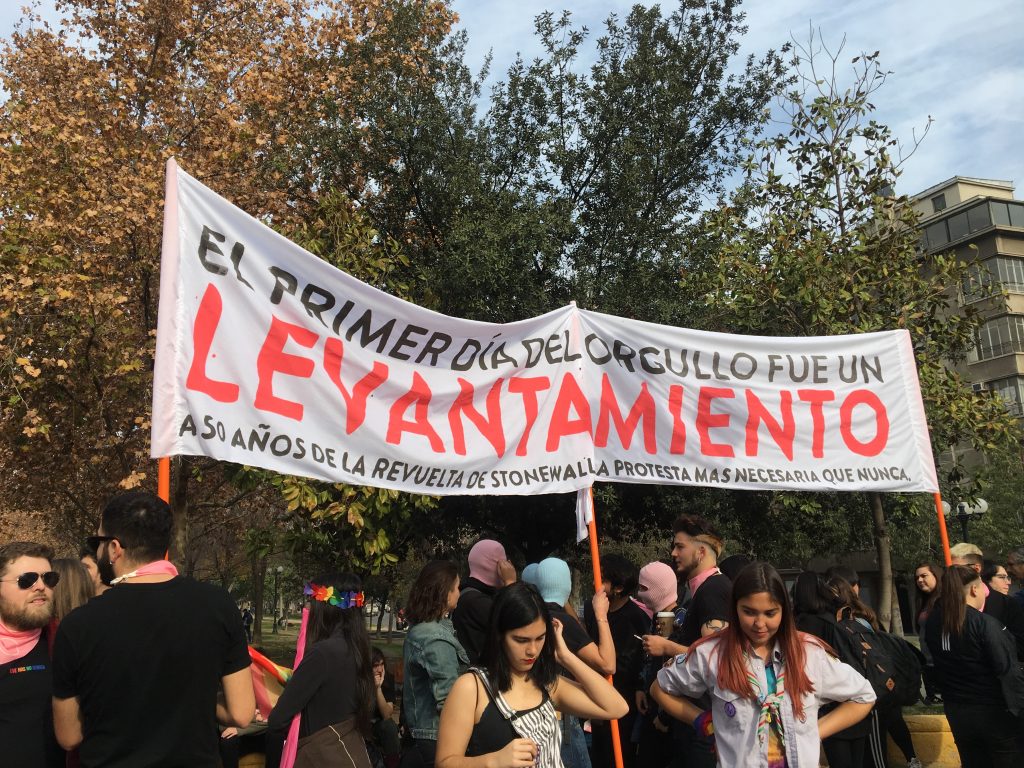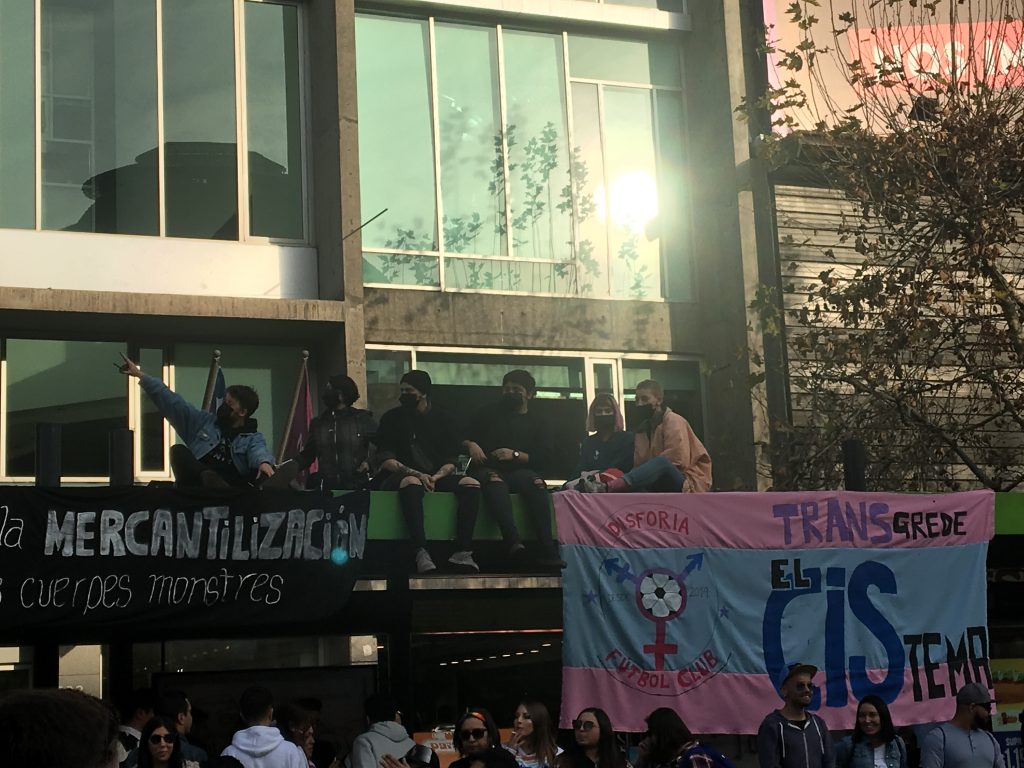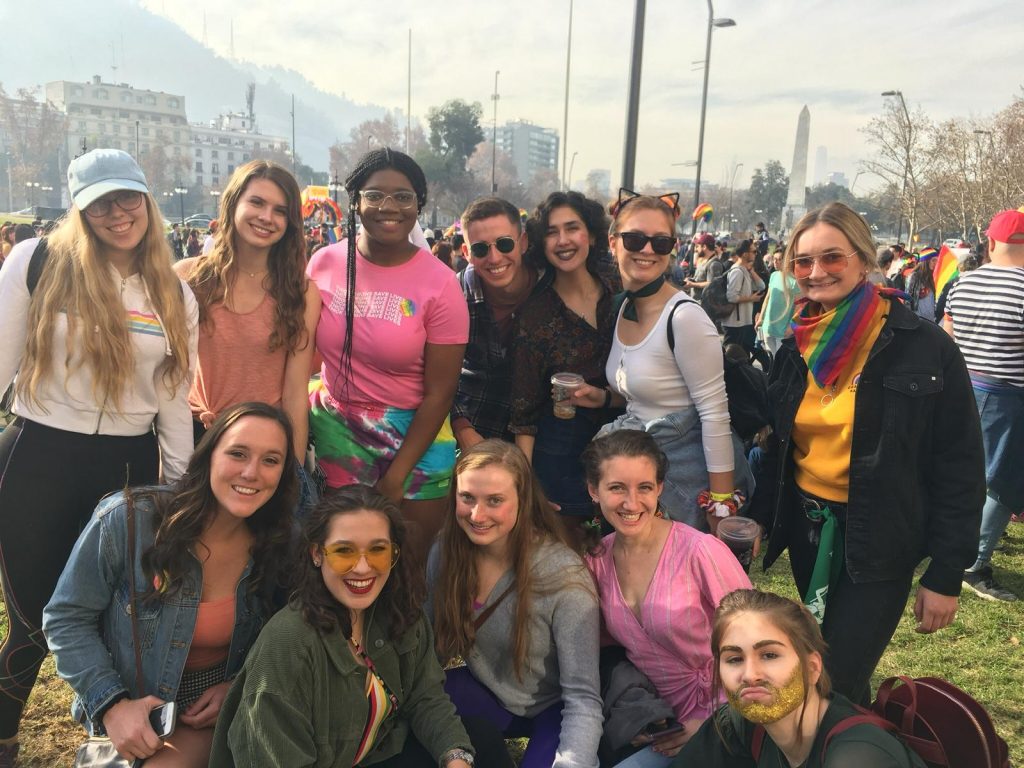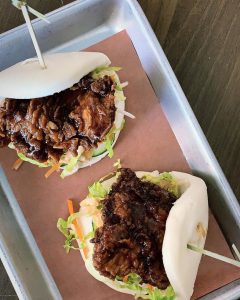Name: Laney Myers
Class Year: 2020
Major: History
Hometown: Cincinnati, Ohio
Internship Organization: National Museum of Natural History, Smithsonian Institution
Job Title: Archival Curatorship and Outreach Intern
Location: Washington, D.C.
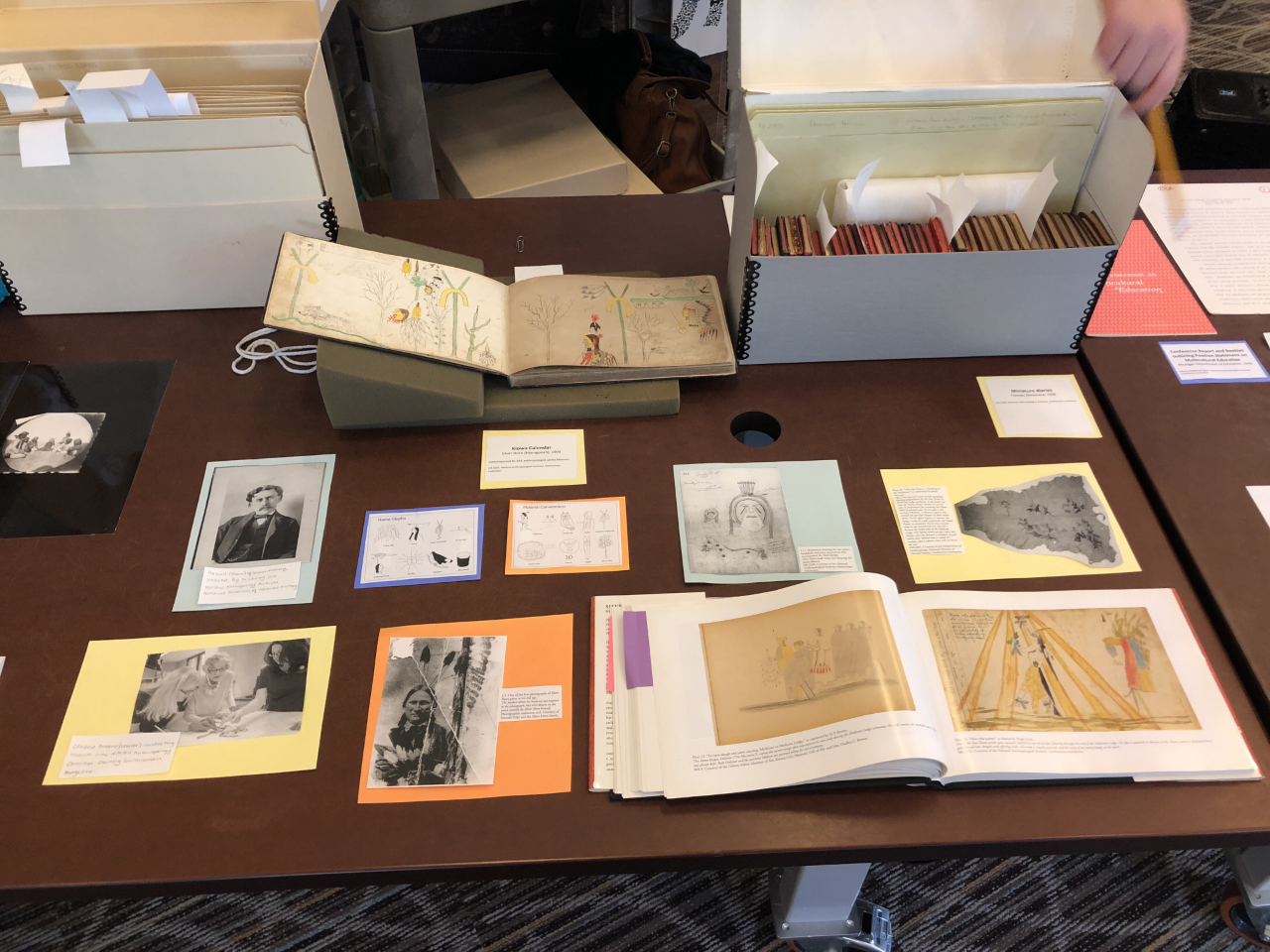
Outreach program displaying a Kiowa pictorial calendar by Silver Horn from the National Anthropological Archive.
What’s happening at your internship?
This summer I’ve been working at the National Anthropological Archives (NAA), assisting with an exhibition set to open at the National Museum of Natural History in February 2020, called Documenting Diversity: How Anthropologists Record Culture. The exhibit will be tiny, housed in just two cases on the ground floor of the Natural History Building. Nestled between an Info Desk and a huge display of taxidermied birds, the space is supposed to get 18 million visitors (or passers-by) per year.
The exhibit itself requires a lot of research, so I’ve been working my way through the archival materials we hope to feature, choosing documents and illustrations that are interesting and support the narrative we’re going for. The other part of my job is outreach — public programming in the museum’s education center (shown in picture!) and writing blog posts to roll out on the Smithsonian Libraries blog. I’m also helping out in the archives, learning a lot about reference and how archives work.
Why did you apply for this internship?
I was looking for experience in libraries and/or archives. This internship was perfect because of the focus on Native American history and the opportunity for reckoning with the legacies of colonialism in the archive.
Was there anything special about how you found this internship?
My internship is a LILAC Partnership that was arranged by Dr. Monique Scott in the Museum Studies Department!
What is something you have learned from your internship that you didn’t expect?
There are several projects and programs dedicated to improving access to the archives for Indigenous communities, to whom the cultural objects in the collections belong. The Recovering Voices program seeks to address the loss of cultural knowledge and promote collaborative knowledge-production by inviting community groups to D.C. to research material objects and engage with the catalog. It feels like an important concrete step to repatriation, or at least making things stored in historically colonial collections beneficial to the groups to whom they belong.
Can you talk about the skills you are learning and why they are important to you?
It’s really empowering to be able to learn to work independently in an archives. Archives are notoriously confusing, opaque or intimidating places, which have a lot of rules that don’t always make sense, and which feel inaccessible and mysterious to the public, researchers and non-researchers alike. Working here has helped me realize that archivists are not barriers to knowledge, they’re the key!


